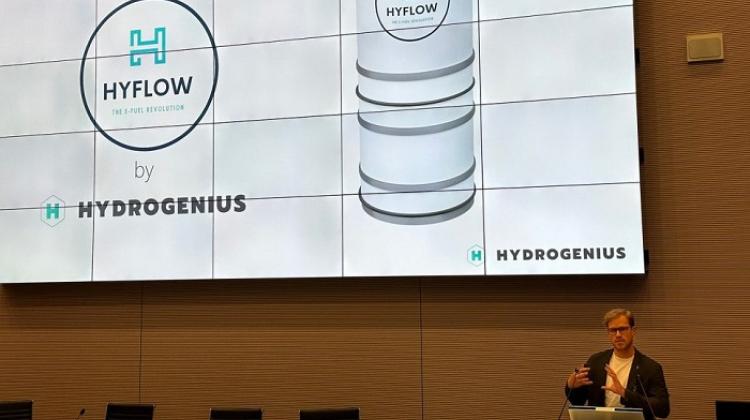Warsaw University of Technology students completed the design work on the rocket CanSat Launcher

Students of Warsaw University of Technology completed the design work on the rocket CanSat Launcher, which will allow to launch eight amateur mini-satellites called CanSats, to an altitude of several kilometres. The first test flight of the rocket will take place in October at the training ground near Toruń.
Rocket project of Warsaw University of Technology students is associated with an international series of CanSat competitions, the aim of which is to encourage high school and university students to build mini-satellites and use them to conduct scientific research. A small CanSat Launcher is designed to carry the so-called CanSats - research probes - into the lower parts of the atmosphere.
At the moment there aren\'t any rockets capable of carrying more than six experiments of this type. Therefore, the students of Warsaw University of Technology are preparing a rocket, which will carry as many as eight. They plan that the minimum ceiling of the CanSat Launcher will be 3 km. Currently, rockets of this type reach the ceiling below 3 km, usually 1-1.5 km.
Students came up with the idea to build the rocket in 2013. Work on the project started a year and a half ago. In July, members of the Rocket Section of the Student Astronautical Club at Warsaw University of Technology completed the design work on the rocket. Almost all the components of the device were manufactured in Poland, and the head and body of the motor were built the Rocket Section members themselves.
The project currently involves fifteen students. Scientific supervisor of the project is Prof. Robert Głębocki of the Faculty of Power and Aeronautical Engineering of Warsaw University of Technology.
The first test flight of the rocket built by students will take place in October at the artillery training ground near Toruń. After the engine disengages and the rockets reaches the maximum ceiling, the CanSat ejecting system will engage. Then, the rear part of the rocket, in which the engine is located, will disconnect, and both parts will land on parachutes.
CanSat competitions are currently held in several countries in Western Europe and in the United States. Next year, the Rocket Section wants to organize of a CanSat competition in Poland. CanSats have a size of 0.33 l drink cans and a weight of 350 g. They are ejected from a rocket at a fixed altitude, usually at the maximum ceiling of the rocket. They can be used to carry out various experiments - the imagination of the authors is the limit.
The originator of the competition is the European Space Agency (ESA), which implements it as part of the educational program through the European Space Education Resource Office (ESERO). In Poland it is coordinated by the Copernicus Science Centre.
PAP - Science and Scholarship in Poland
ekr/ mrt/
tr. RL
Przed dodaniem komentarza prosimy o zapoznanie z Regulaminem forum serwisu Nauka w Polsce.

















